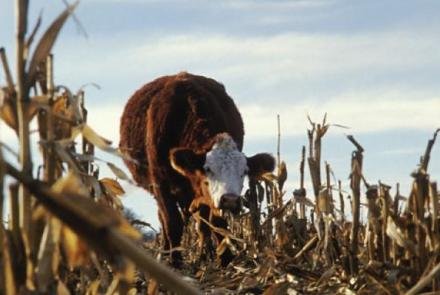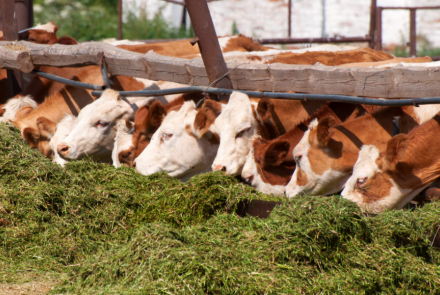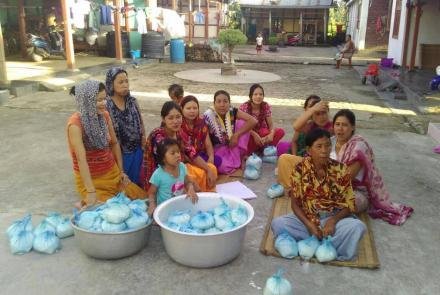Women trained to train others on climate adaptation
A few weeks back, Shestrong Association South Asia organised a training program for women living in Ningthoukhong, Manipur, on "Gender, Climate Change, Agriculture and Food Security".
Imphal is prone to floods and one of the most vulnerable areas to climate change shocks. These pre-conditions makes it necessary to raise awareness among villagers about the climatic changes and how to adapt.
The objective of the program was to initiate a strategy which includes building capacity among women to deal with climate change. The main challenge with the training was to make sure the women got enough of it - to ensure they felt confident in training others and with that become future trainers to other women.
The women discussed and shared experiences on how gender actually plays an important role when it comes to the impacts of climate change. This because men and women in the village shoulder different tasks within the household and on the farm, based on gender and cutural- and social norms that are dfficult to change.
The trainings included elected women leaders of local, self-governance institutions, i.e. the Panchayat Raj Institutions (PRIs). What the women wanted to take home with them, were practical ways in which they, as PRI leaders, could enable adaptation in their constituencies, especially by using the government’s programmes and schemes.
The outreach activities were done in collaboration with Alternative Futures and Mahila Samakhya-Manipur, with the goal that each of the 50 participants will train 40 other female members covering almost 2.000 women in several districts of Manipur in India.
The trainings started with women’s own experiences, provided additional information and, with the help of pictures and diagrams, introduced new, but related, information about greenhouse gases, climate change indicators and the water cycle.
Government officials from the agriculture and the Panchayati Raj Department came in as resource persons to impart more information and knowledge, through film clips and real-life examples, on how some of the government programmes are being used for climate-resilient agriculture, and the potential for women farmers to play critical roles here.
A ‘Do-it-yourself’ Training of Trainers (ToT) Manual, prepared by Alternative Future in consultation with Shestrong Association was given to each trainee. The manual sets out the agenda, indicates the methodology for each session and summarizes the contextual content for each session.
A lot of the learning took place in groups discussions, where women used their current knowledge to discuss how seasons are changing and becoming unpredictable; what impacts this is having on their crops, their cattle, their water sources, their health and the forests they depend on. They gave examples of how all this is making it more difficult for them to ensure enough food year-round for their family. Above all, they shared how gender plays a critical role in the impacts of climate change because men and women shoulder different tasks in agriculture and in their homes.
“Men and boys have the first right over available food,” one participant said, “we women have learnt to go to bed on an empty stomach.” They discussed how their adaptive capacities differed because women, unlike the men, have no resources or decision-making powers inside or outside their homes, to cope with this alarming situation. Two-thirds of the 55 trainees were elected leaders from local and district-level Panchayats across 14 districts. However, this hardly empowered the elected women to deal with this continuing crisis.
“My husband continues to control decision-making in my constituency,” said 37-year-old Manitombi, a town commitee member which is judicial head of the local Panchayat in the district Bishnupur. “After this training I will explain to him the need to create awareness about this issue. Higher temperatures and untimely rains are a major concern to farmers. I have learnt here how climate change impacts the health, well-being and food security of women and men. I have also gained knowledge on various adaptation strategies and would like to spread awareness on these issues.”
All the main messages by these women were sharp and coherent. The icing on the cake, however, is the collection of brilliant short poems written in Hindi by about a dozen women participants. These poems lucidly encapsulate not only the previous days’ learning, but also caught the mood of the training and commented on the trainers and the trainees






